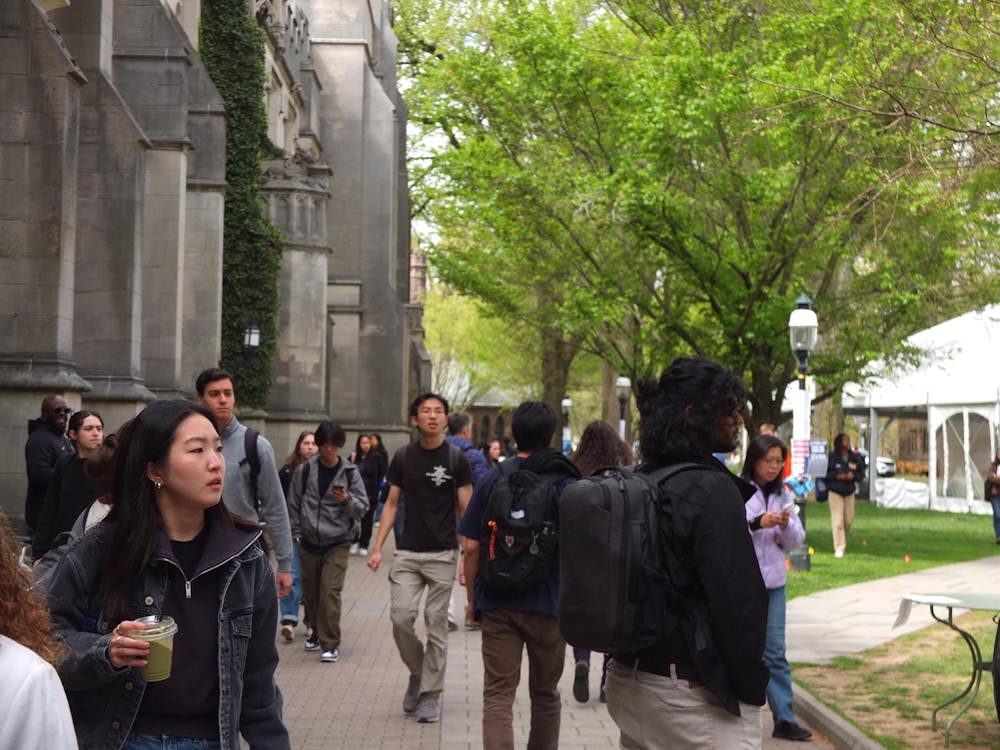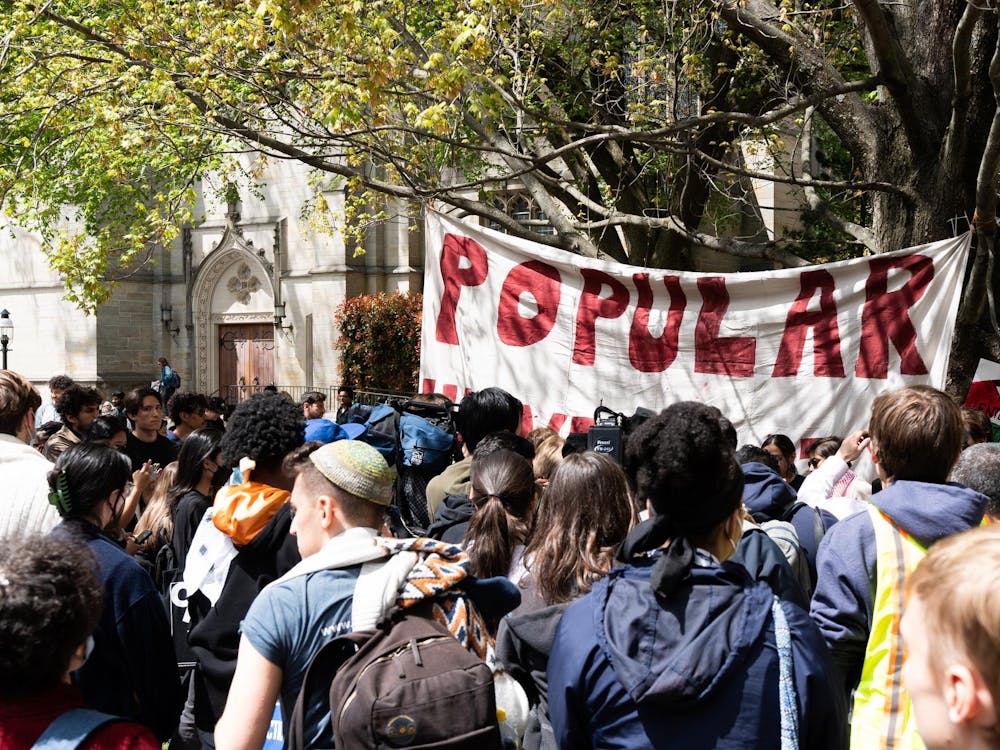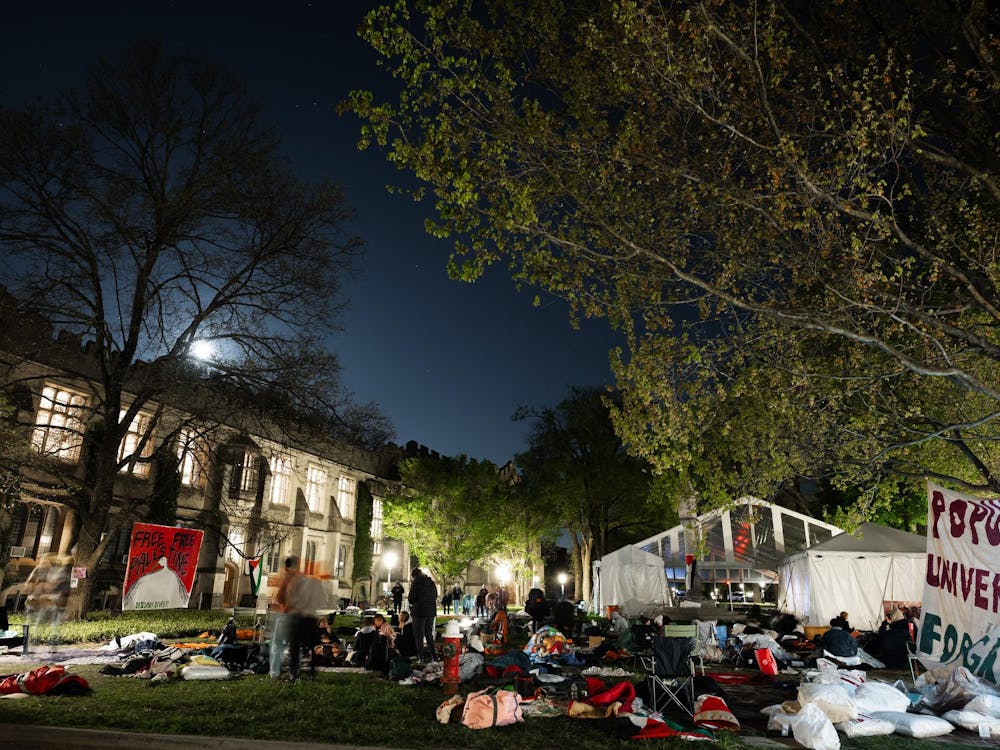Undergraduates’ exposure to turbulent and difficult times are important as preparation for their promising futures as agents of change in the world, former EPA administrator Lisa Jackson GS '86 said in her Baccalaureate addresson Sunday.
Jackson’s address was humorous at times but also struck a serious chord when she alluded to issues of gender discrimination and racial prejudice.
“I was trying to think about what to talk to you about today, and, number one, I just wanted to keep it real,” Jackson said.
Jackson said that, though it is important to encourage students to follow their dreams, she wanted to address another important topic in her address. Her plan, she said, was to instead talk about how students at the University are exposed to and encouraged to discuss and respond to challenges in society, specifically the challenging times of the past year in the United States and the four years the Class of 2015 has been at the University.
“The past year in particular has been turbulent for many in our country, and Princeton has not been immune to that turbulence,” Jackson said.
Jackson explained she wanted to focus on the Class of 2015’s experience in particular, which she said was unique and not always easy, and has changed the students in ways they might not yet understand.

“You’ve had discussions, you’ve had social media, you’ve had publicity, you’ve had protests, all about justice and equality and rights and our community. Those have all been a part of your four-year journey,” Jackson said.
Whether students were directly involved in these things or saw them from the periphery, they still had an effect on all students, Jackson said.
“I’m not saying you should be glad that difficult and regrettable things happened during your time here, but you should be grateful that they did not go unnoticed, that you were not insulated from those things, that you had the discussions and the debates and the confrontations that you had," Jackson explained. "You came here for an education and, as the years go by, you’re going to realize that you absolutely got one.”
Jackson discussed the importance of students being exposed to and learning how to exist in a diverse community. That aspect of the Princeton experience is real learning, Jackson said. Going through things as a community, together, helps to forge students’ identities as individuals and as a class, she added.
Jackson discussed her own life and college experience, explaining her own challenges, from having to step up to the challenge of University academics tothe prejudice that existing during her time at the University. She noted the challenges students of color faced in trying to rent an apartment in the township to her and a fellow African-American student’s own experience getting stopped by a police officer in a parking lot.
She said she later realized the University was an accepting place to her.
Jackson’s first lesson for students, she said, was for them not to be afraid to pursue what is right for them.
“It’s really important to know the difference [between failure and changing course], and to give yourself permission to change course, to pursue what’s right for you, because that’s what I did,” she said.
She also conveyed lessons she said she learned at the University about environmentalism and chemicals, as well as regulation, and which she said were ones she carried into her career.
“I became immensely interested in issues of justice, and that carried over into my work,” she said of her time at the University, explaining that issues of justice and pollution in poor communities are passions of her still today. “I know that Princeton is part of who I am,” she said.
Many students, she said, are likely still processing what they’ve experienced while at the University. The University experience, she said, may seem more heterogeneous to students than they once thought.
“The world you are about to enter does not show any signs of being better equipped to deal with issues of injustice and inequality than when you entered here four years ago,” she said.
Jackson said students are equipped to deal with these challenges after the University, whether or not they realize it.
She urged students to continually reflect on their Princeton education to find the tools they need to navigate a complicated world.
“With compassion and introspection, you will be ready to change the world,” she said.
What really sets Princetonians apart is to question and to demand the best, especially from their own great institution, she said.








